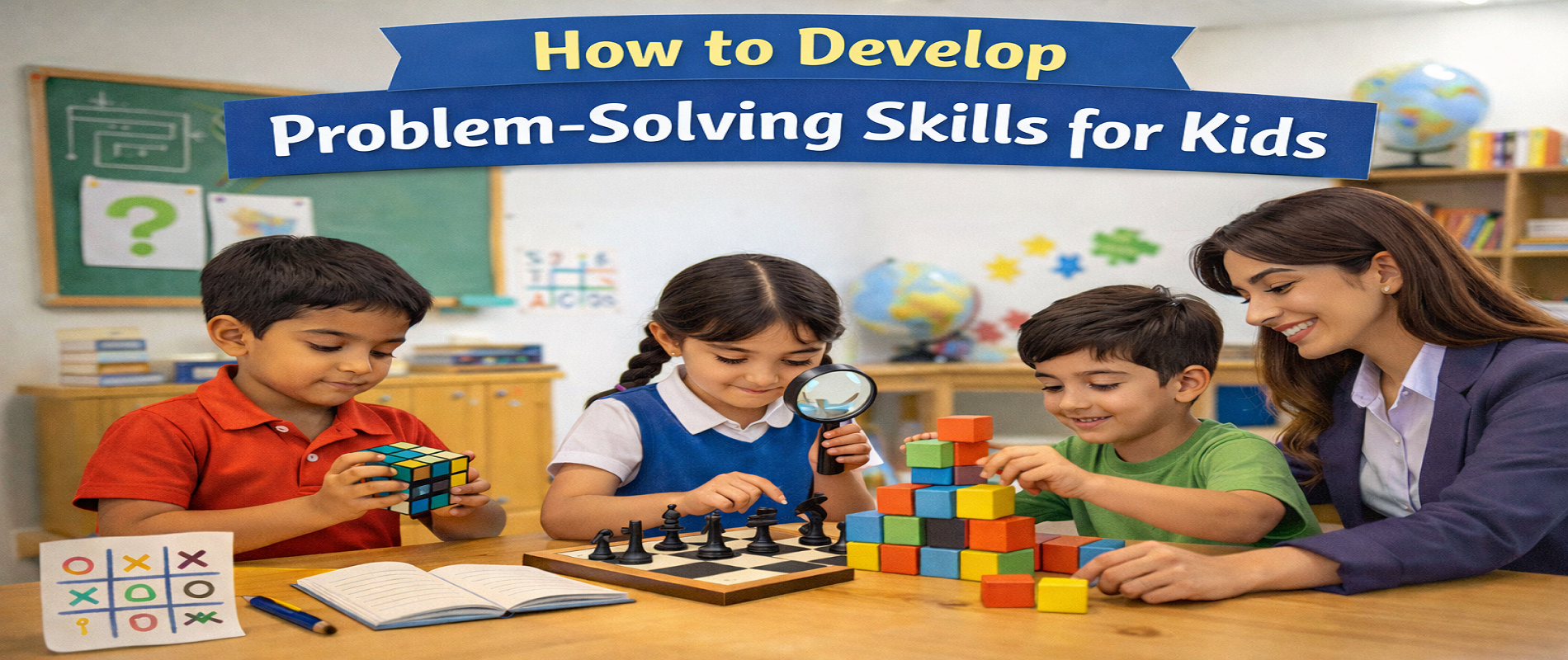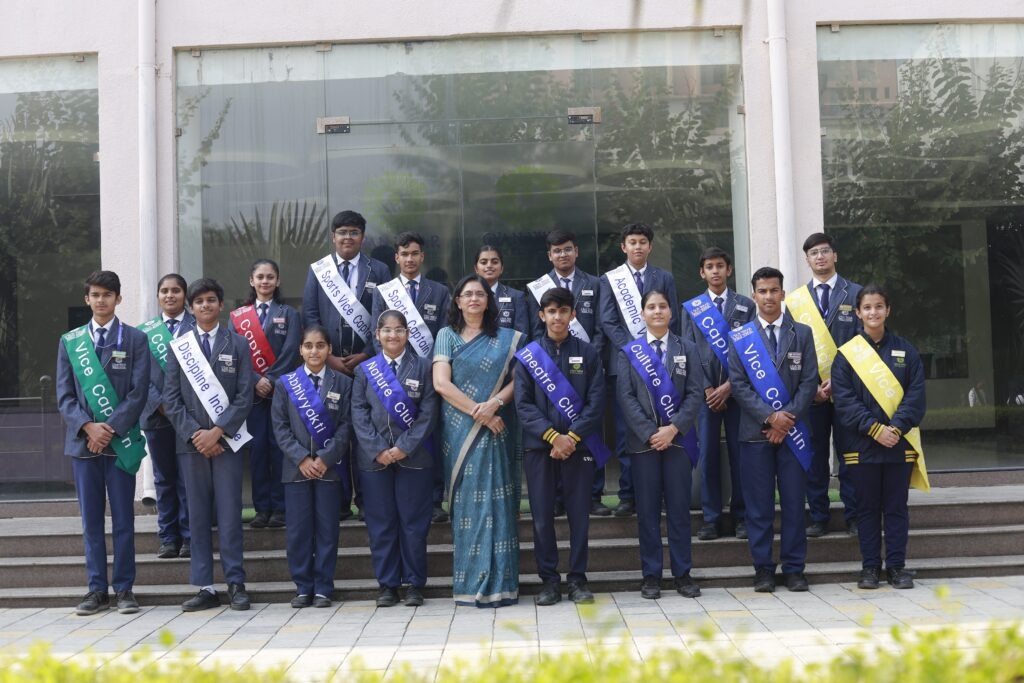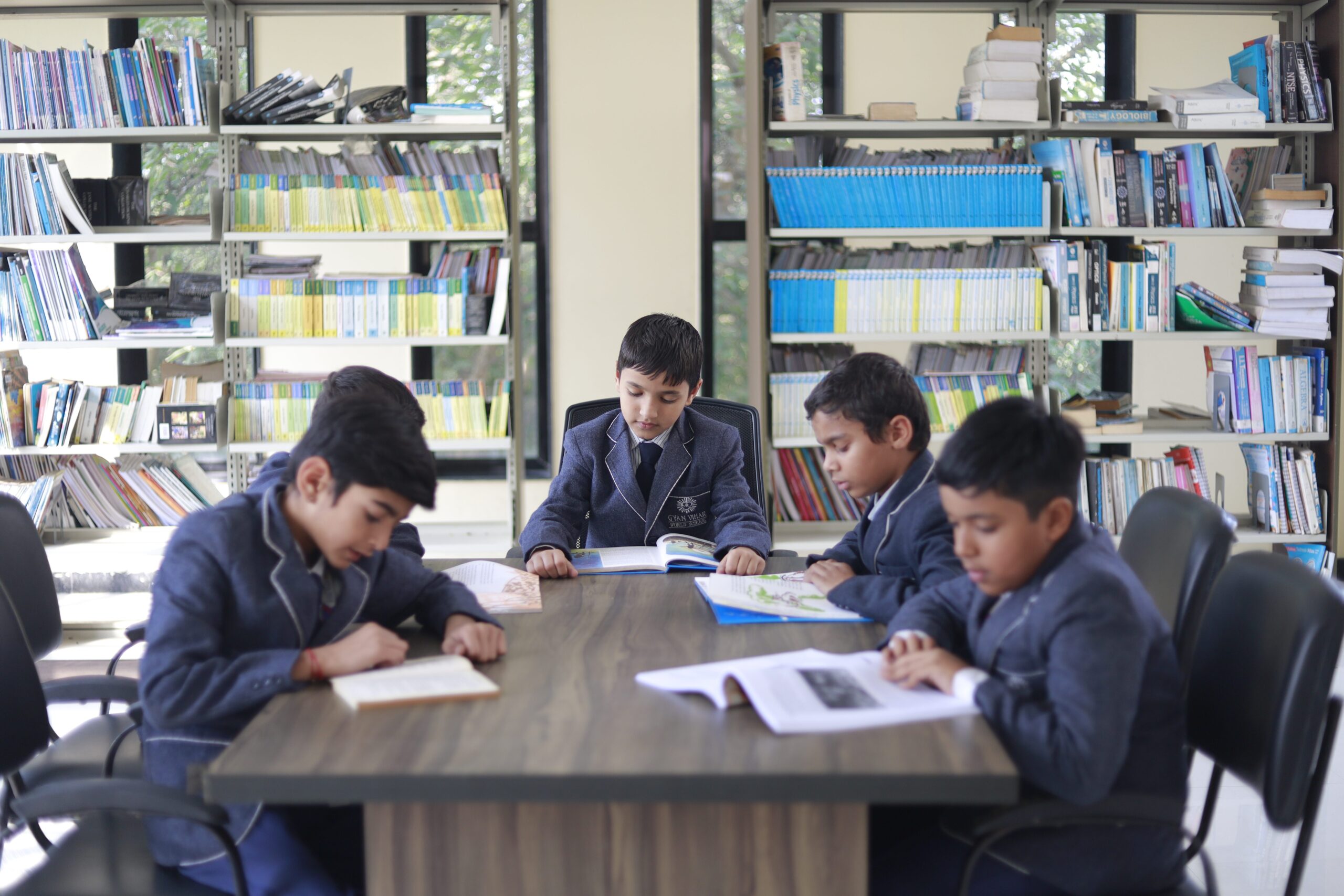In today’s tech-driven world, staying connected is more important than ever. From online learning and social media to entertainment and communication, technology plays a vital role in our lives, especially for students at Gyan Vihar World School. However, just like anything else, excessive screen time and unhealthy digital habits can have negative consequences. This is where digital wellness comes in!
What is Digital Wellness?
Digital wellness refers to the state of being healthy and balanced in your relationship with technology. It’s about using technology purposefully and intentionally, ensuring it enhances your life rather than detracts from it.
Why is Digital Wellness Important for Students?
Students at Gyan Vihar World School, a leading institution recognized as one of the Top Schools in Jaipur, a CBSE Schools in Jaipur, and the Best School in Jaipur, understand the importance of academic excellence. However, studies show that excessive screen time can have a range of negative consequences that can hinder their overall well-being:
- Concentration and Learning: The constant barrage of notifications, alerts, and the lure of social media can significantly disrupt a student’s ability to focus and retain information. Multitasking between screens and studying can lead to shallow processing of information and hinder the development of critical thinking skills.
- Sleep Quality: The blue light emitted from electronic devices suppresses the production of melatonin, a hormone crucial for regulating sleep-wake cycles. This can lead to difficulty falling asleep, restless nights, and daytime fatigue. Sleep deprivation can significantly impact a student’s ability to concentrate, learn, and retain information.
- Mood and Mental Health: Social media platforms can cultivate feelings of inadequacy and social comparison, particularly when students encounter unrealistic portrayals of others’ lives. This can negatively impact self-esteem, contribute to anxiety and depression, and lead to feelings of isolation. Cyberbullying and negative online interactions can further exacerbate these mental health concerns.
- Physical Health: Excessive screen time often translates into a more sedentary lifestyle. Students glued to their devices are less likely to engage in physical activity, increasing the risk of obesity, muscle weakness, and other health problems.
- Social Interaction: Overreliance on technology for communication and entertainment can hinder the development of essential social skills. Face-to-face interactions allow students to practice nonverbal communication, build empathy, and develop healthy relationships. Excessive screen time can lead to social isolation and difficulty navigating social situations.
Digital Wellness Strategies for Gyan Vihar World School Students
Equipping Gyan Vihar World School students with the tools to cultivate digital wellness empowers them to take control of their relationship with technology and reap the benefits of a balanced approach:
Taking Control of Your Tech Time:
- Track Your Screen Time: Utilize apps or built-in features on your devices to monitor your daily usage. This initial awareness is crucial for identifying areas where you might need to cut back.
- Set Screen Time Limits: Establish realistic and achievable screen time limits for different activities like social media browsing, gaming, or video streaming. Use parental controls or apps to help you manage your time effectively.
- Schedule Tech-Free Zones: Designate specific times or areas in your day or home as “tech-free zones.” This could include your bedroom before bed, mealtimes, or dedicated study periods. Allow yourself to disconnect and focus on other activities during these designated times.
Prioritizing Sleep and Well-being:
- Blue Light Filters: Enable night mode or blue light filters on your devices, particularly in the evenings, to minimize the disruption of your sleep cycle. These features reduce the emission of blue light, which can interfere with melatonin production.
- Power Down Before Bed: Avoid using electronic devices for at least an hour before bedtime. The blue light emitted from screens can suppress melatonin production and make it difficult to fall asleep. Develop a relaxing bedtime routine that includes activities like reading, taking a bath, or meditating to promote better sleep.
- Engage in Relaxing Activities: Develop a repertoire of relaxing activities that don’t involve technology to help you wind down before bed. This could include reading, taking a warm bath, practicing mindfulness exercises, or listening to calming music.
Boosting Social Interaction and Physical Activity:
- Face-to-Face Communication: Make a conscious effort to schedule regular face-to-face interaction with friends and family. Participate in activities that encourage conversation and social connection, like playing games, going for walks, or volunteering together.
- Embrace Physical Activity: Set aside dedicated time for physical activity every day. This could involve joining a sports team, going for a run or bike ride, dancing to your favorite music, or participating in a fitness class. Exercise is a great way to combat the negative effects of excessive screen time, improve overall well-being, and boost your mood.
- Explore New Hobbies: Expand your horizons by discovering hobbies and interests that don’t involve technology. This could be anything from learning a new language, playing a musical instrument, or pursuing artistic endeavors like painting, drawing, or writing. Engaging in creative activities allows for self-expression, reduces stress, and fosters a sense of accomplishment.
Finding Balance: A Rewarding Journey
Digital wellness isn’t about completely eliminating technology from your life. It’s about achieving a healthy balance and using technology mindfully. By implementing these strategies, Gyan Vihar World School students can experience a multitude of benefits:
- Improved Focus and Concentration: Reduced screen time and a better night’s sleep lead to improved cognitive function. Students can concentrate better in class, retain information more effectively, and perform well academically.
- Enhanced Sleep Quality: By minimizing blue light exposure and establishing a relaxing bedtime routine, students can experience deeper, more restful sleep. This translates to increased energy levels throughout the day, improved mood, and better overall well-being.
- Boost Mood and Mental Health: Reducing screen time and prioritizing sleep can lead to a more positive outlook, reduced stress and anxiety, and enhanced self-esteem. Students feel more in control, experience greater emotional resilience, and can better manage the pressures of academics and social life.
- Strengthened Social Connections: By spending less time glued to screens and more time engaging in face-to-face interactions, students can build stronger relationships with friends and family. This fosters a sense of belonging, improves communication skills, and provides a strong support system that contributes to overall well-being.
- Increased Physical Activity: Decreased screen time allows for more time to dedicate to physical activities. Exercise releases endorphins, natural mood elevators, and promotes a healthy body image. Physical activity can also improve sleep quality and reduce stress, creating a positive feedback loop for overall well-being.
- Develop Other Skills: Freeing up time from technology allows students to explore new hobbies, develop creative skills, and discover their passions. Whether it’s learning a new language, playing an instrument, or writing poetry, engaging in these activities fosters personal growth, self-discovery, and a sense of accomplishment.
The Role of Parents and Guardians
Parents and guardians play a vital role in supporting students’ digital wellness journey. Here are some ways you can help:
- Open Communication: Talk openly with your child about the importance of digital wellness and establish clear expectations for technology use at home.
- Be a Role Model: Practice healthy digital habits yourself to set a positive example for your child.
- Create Tech-Free Zones: Designate specific areas in your home, like bedrooms or dinner tables, as “tech-free zones” to encourage offline interaction and relaxation.
- Encourage Alternative Activities: Support your child’s exploration of hobbies and interests that don’t involve technology.
- Schedule Family Time: Plan regular family activities that are screen-free, fostering connection and creating lasting memories.
Digital Wellness: A Lifelong Journey
Developing digital wellness habits is an ongoing process. There may be times when you slip up or find yourself spending more time on screens than you intended. The key is not to get discouraged but to recommit to your goals and get back on track. Remember, Gyan Vihar World School, one of the Best Schools in Jaipur, is here to support you on this journey. We believe in nurturing well-rounded individuals who excel not just academically but also thrive emotionally and socially. By prioritizing digital wellness, you’re investing in your overall well-being and setting yourself up for success in all aspects of life.
We hope this blog has been informative. If you have any questions about Gyan Vihar World School or our commitment to student well-being, please don’t hesitate to contact us.







